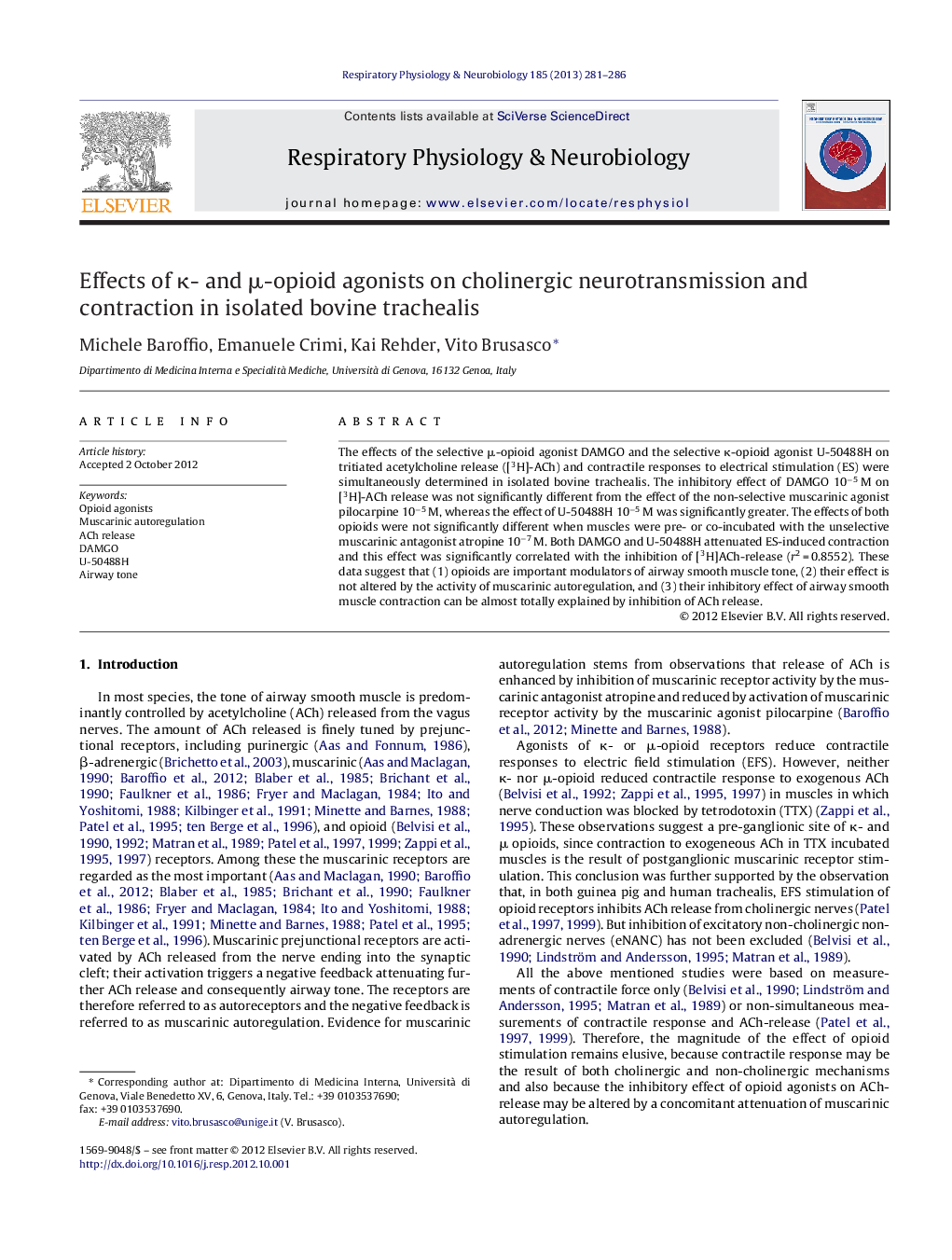| Article ID | Journal | Published Year | Pages | File Type |
|---|---|---|---|---|
| 2847281 | Respiratory Physiology & Neurobiology | 2013 | 6 Pages |
The effects of the selective μ-opioid agonist DAMGO and the selective κ-opioid agonist U-50488H on tritiated acetylcholine release ([3H]-ACh) and contractile responses to electrical stimulation (ES) were simultaneously determined in isolated bovine trachealis. The inhibitory effect of DAMGO 10−5 M on [3H]-ACh release was not significantly different from the effect of the non-selective muscarinic agonist pilocarpine 10−5 M, whereas the effect of U-50488H 10−5 M was significantly greater. The effects of both opioids were not significantly different when muscles were pre- or co-incubated with the unselective muscarinic antagonist atropine 10−7 M. Both DAMGO and U-50488H attenuated ES-induced contraction and this effect was significantly correlated with the inhibition of [3H]ACh-release (r2 = 0.8552). These data suggest that (1) opioids are important modulators of airway smooth muscle tone, (2) their effect is not altered by the activity of muscarinic autoregulation, and (3) their inhibitory effect of airway smooth muscle contraction can be almost totally explained by inhibition of ACh release.
► The effects of opioids on ACh release and force were studied in bovine trachealis. ► DAMGO had an inhibitory effect on ACh release that was similar to pilocarpine. ► U-50488H had an inhibitory effect on ACh release greater than DAMGO or pilocarpine. ► The effects of these opioid agonists on ACh release were not altered by atropine. ► Force inhibition by opioids was almost fully explained by ACh-release inhibition.
